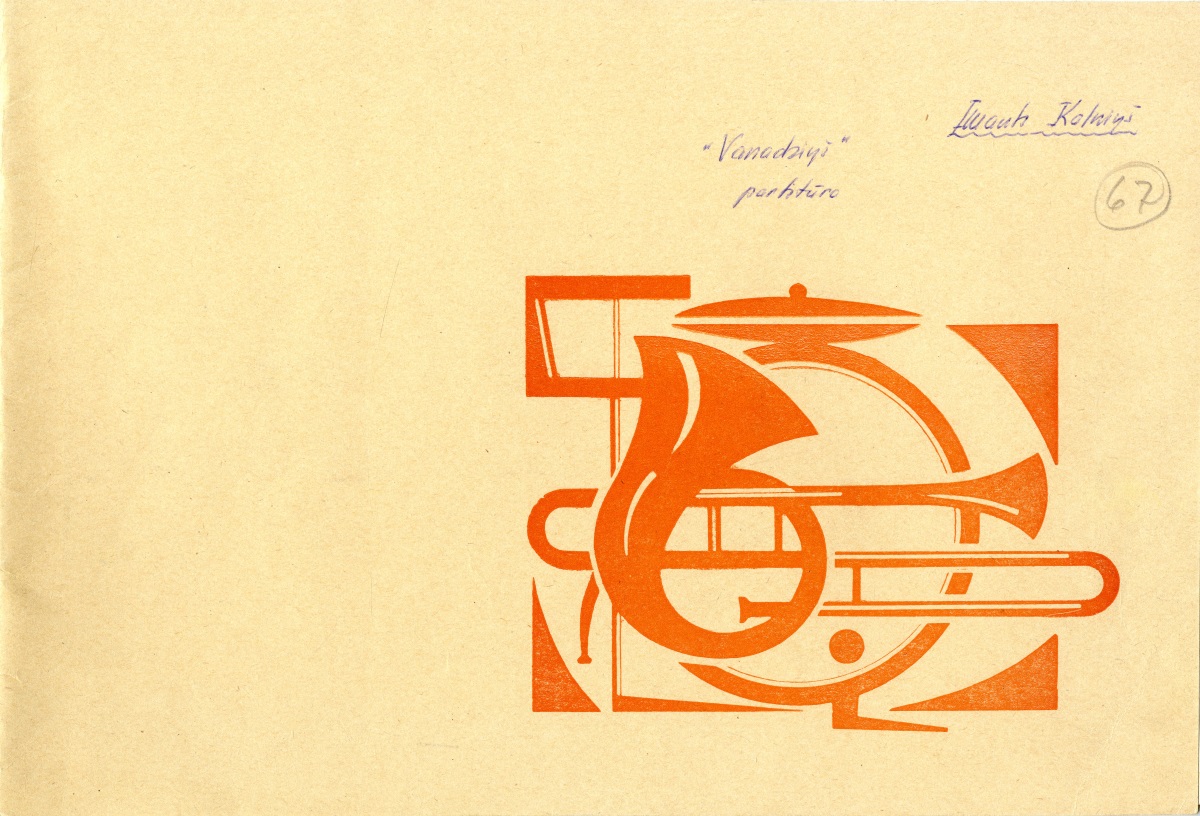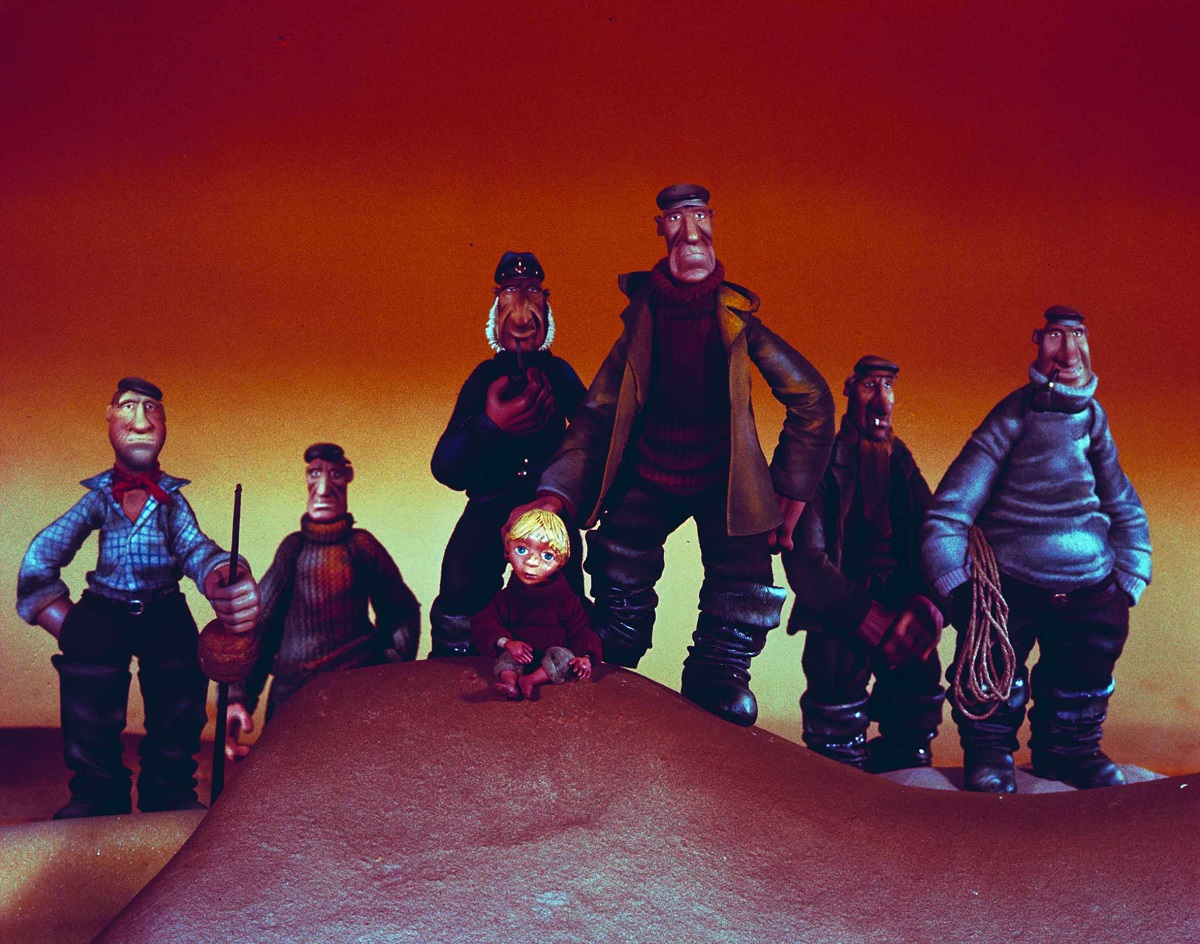“Little Hawk” is based on the book by the same name, authored by Vilis Lācis (1904−1966). The audience is introduced to the simple but loving family home of Little Hawk, the protagonist of this film, who is a young boy that lives with his father and his cat. They live on the shore very near to the water. Everyday his father goes out to sea to fish and returns late in the evening, while Little Hawk entertains himself with daydreams of becoming a sea captain and plays with his cat. One evening his father does not return home, lost at sea. Little Hawk and his faithful cat wait and wait, but the father never returns. The film ends with a poignant and touching image of the young boy staring out to see surrounded by other fisherman in the background who have come to support his now orphaned child.
Arnolds Burovs is celebrated as the person who started and successfully developed live-action puppet cinema in Latvia. His career began in the Puppet Theatre in Rīga, where he joined as a set artist, before taking on role of scenographer and eventually becoming the principal artist at the Puppet Theatre in 1944. He took a short break in his career in 1948 to study directing in the Theatre Faculty of the Latvian State Conservatory. After he returned to the Puppet Theatre as a director. In 1963 he was invited by the Rīga Film Studio to make a film using puppets and in 1966 successfully directed the first ever Latvian live-action puppet film “Cock-a-doodle-doo!” (Ki-ke-ri-gū!). This was this first film to be made by the live-action puppetry department of Rīga Film Studio, established and led by Burovs for the next 24 years, during which time they made 40 films and for which he received numerous honours and awards.
“Little Hawk” is considered to be one of the best examples of Burovs’ work. It is praised for being able to reach great emotional depth through a very minimalist, laconic style. The only text is spoken by a narrator, actor Uldis Dumpis (1943), and even this is kept to a minimum. The movements of the characters are simple yet effective, and the narrative world of the film is kept within the bounds of the small hut in which Little Hawk and his family live and a few metres around its perimeters. The film, however, is able to speak to both young and old, sweeping the audience up in the idealism of their tiny world, which is then turned upside down and shattered by the death of the father.
In 1995 Burovs was awarded the highest Latvian medal of honour, the Three Star Order.
Klāra Brūveris
You can watch the film online for free within Latvia on the portal www.filmas.lv.




